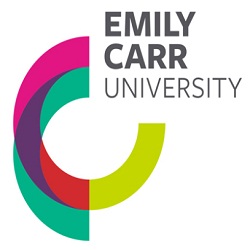About Emily Carr University of Art and Design
College Info
The Emily Carr University of Art and Design (ECU), sometimes known as Emily Carr University, is a renowned art and design school in Canada's maritime city of Vancouver. Under the name Vancouver School of Decorative and Applied Arts, it was founded in 1925. In British Columbia, ECU was the first and only post-secondary institution to offer professional education in the creative industries. In 1978, the institution's name was changed to Emily Carr College of Art in honour of the well-known Canadian author and artist Emily Carr. After the institution received university status in 2008, ECU started conducting business under its current name. The college moved its campus to its current location in 2017. It is affiliated with the Association of Independent Colleges of Art and Design and the Canadian Bureau for International Education.
Modern buildings, walkways, green spaces, and parking lots make up ECU's stunning campus. The university offers top-notch academic facilities, including sophisticated classrooms, labs, and studios furnished with cutting-edge machinery and current technology. Students and teachers can use the extensive variety of printed and digital resources available in the ECU library for studying, teaching, and research. The three Canada Research Chairs have established various studios and labs there since 2014. Instead of providing on-campus housing, the institution offers off-campus housing. On campus, there are several places to eat where students may get delicious, healthy food and drinks. Public access is available to facilities including the bookstore, galleries, and publications. The campus also has a lecture hall, a medical centre, and a digital output centre.
Four faculties that offer 11 undergraduate degrees and two postgraduate programmes make up ECU's academic organisation. The students have the option of pursuing degree programmes in sculpture, illustration, photography, communication design, media, social science, and visual arts. Additionally, it offers a selection of professional credentials, teen programmes, and specialised courses in a number of academic fields. Around 1,869 students and more than 300 employees make up the community at ECU, which is made up of people from different cultures and nations. About 471 international students from 51 different countries make up the student body. The school employs 190 administrative officers and 120 academic affiliates who are all skilled, seasoned, and accountable.
As a result of its graduates residing in numerous nations throughout the globe, ECU maintains a sizable alumni network. Numerous individuals honoured for their contributions in their disciplines are listed among the alumni. Kate Ali, a visual artist, Frank Palmer, a businessman and advertising executive, Lynn Johnston, a cartoonist, Carole Itter, a filmmaker, writer, and artist, Ann Kipling, a Canadian artist, Joy Zemel Long, a painter, and Julian Lawrence are some of the famous ECU alums (Award-Winning Cartoonist).
Why Emily Carr University?
- One of the top postsecondary institutions for art and design in Canada.
- Encourages a professional and practice-focused learning environment.
- Since its founding, it has hosted students from over 50 different nations.
- One of British Columbia's first postsecondary schools.
- Provides education of a high calibre.
Emily Carr University Tuition Fees
| Courses |
Duration |
Tuition Fees |
| Engineering (1 Courses) |
4 year |
CAD 14,904 |
| Media Films (2 Courses) |
16 Month - 4 Year |
CAD 14,904 - CAD 33,000 |
Emily Carr University of Art and Design International Students Admission
The students must have finished secondary education with a college preparation curriculum, according to a requirement set forth by the university. Both applicants from abroad and those living domestically go through the same application process. However, there are certain additional entrance requirements for applicants from abroad.
How to apply Emily Carr University of Art and Design?
Application Portal: EducationPlannerBC Application Service
Application Fee: 70 CAD
Admission Requirements:
- A completed formal application with all the required details.
- Proof of graduation from grade 12 secondary school with five grade 12 subjects.
- All official academic transcripts, certificates, or grade records from the institution that you received your secondary education.
- Minimum TOEFL, IELTS scores for proof of English proficiency.
- Applicants are required to send their portfolio online through SlideRoom.
- Letters of recommendation
- Statement of purpose
Emily Carr University of Art and Design English Proficiency Test Scores
| Test |
Score required for Undergraduate students |
Score required for Graduate students |
| TOEFL-iBT |
84 |
90 |
| IELTS |
6.5 |
7.0 |
| CAEL |
70 |
80 |
| PTE |
56 |
66 |
| MELAB |
81 |
81 |
Emily Carr University of Art and Design Highlights
| Established |
1925 |
| Type of College |
Public |
| Campus setting |
Urban |
| Mode of programs |
Full-time, Part - time, Online |
| Academic calendar |
Semester-based |
| English Language Tests scores accepted |
IELTS, TOEFL, CAE, MELAB |
| Campus Area |
4.6 acres |
| Scholarships |
Available |
Emily Carr University of Art and Design Living Expenses
| Expenditure Item |
Amount (CAD per semester) |
| Graduation fee |
85 |
| Health Insurance |
275 (per year) |
| Transit Pass |
44.20 |
| Housing Fee |
1,100 |
| Utilities |
155 |
| Meal Plan |
500 |
| Personal Care |
220 |

